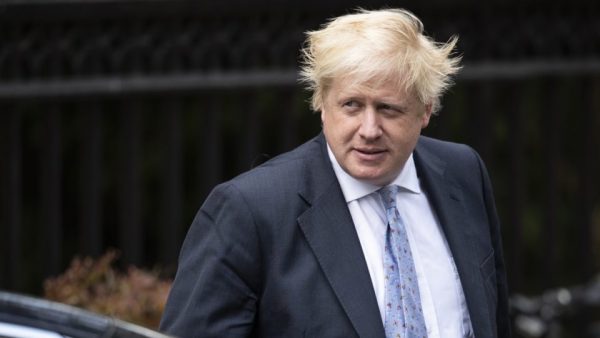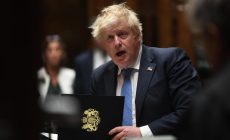Boris Johnson is next British Prime Minister
- Posted on
- Comment
 Boris Johnson will become Britain’s next prime minister after being elected leader of the Conservative party, defeating Jeremy Hunt in the party’s leadership contest.
Boris Johnson will become Britain’s next prime minister after being elected leader of the Conservative party, defeating Jeremy Hunt in the party’s leadership contest.
The former mayor of London, who has long cherished an ambition to lead his country, won the contest by 92,153 votes to 46,656, with 66% of the vote. Turnout was 87.4% among 159,320 party members.
Johnson will not take office formally until Wednesday afternoon. Theresa May will face her final prime minister’s questions in the House of Commons before tendering her resignation to the Queen.
Johnson will then go to Buckingham Palace himself for his appointment to be confirmed – before being driven to Downing Street to give a speech in front of the black door of No 10.
He takes charge at a perilous political moment. The Conservatives’ wafer-thin parliamentary working majority is expected to be eroded further next week – to just two – if the Liberal Democrats win the Brecon and Radnorshire byelection.
Johnson has faced a furious internal revolt even before arriving in Downing Street, with several key cabinet ministers, including the chancellor, Philip Hammond, saying they will resign rather than serve under him.
They have been alarmed by Johnson’s insistence that he is willing to countenance leaving the European Union without a deal on 31 October, rather than postpone Brexit once again – even if that meant proroguing parliament.
And despite painstaking media management, his campaign has been dogged by a series of controversies, including the revelation that policr has been called to a noisy argument at the home he shared with his partner, Carrie Symonds.
He was also blamed by some colleagues, including the Foreign Office minister Alan Duncan, for the resignation of the ambassador to Washington, Kim Darroch, after confidential diplomatic cables about Donald Trump were leaked.
However, Johnson had been the runaway favourite to become leader after securing support from both wings of the bitterly divided Tory party, from the health secretary, Matt Hancock, to the chair of the European Research Group, Jacob Rees-Mogg.
He is regarded by colleagues as an impressive political campaigner, and the man with the best chance of seeing off the formidable electoral challenge from Nigel Farage’s Brexit party, which beat the Tories soundly in May’s European elections.
May will leave Downing Street on Wednesday after three years, after a premiership overwhelmingly defined by the failure of her government to implement Brexit.
Johnson is likely to embark on fresh negotiations with EU leaders and key Brussels decision-makers as soon as possible, with a view to securing changes to May’s deal in time for the Halloween deadline.
But with no secure majority, and Labour determined to demand a referendum on any deal he brings back from Brussels, many MPs believe he could be forced to call a general election within months in order to win a mandate for his plan.
-The Guardian UK










 (Selorm) |
(Selorm) |  (Nana Kwesi)
(Nana Kwesi)